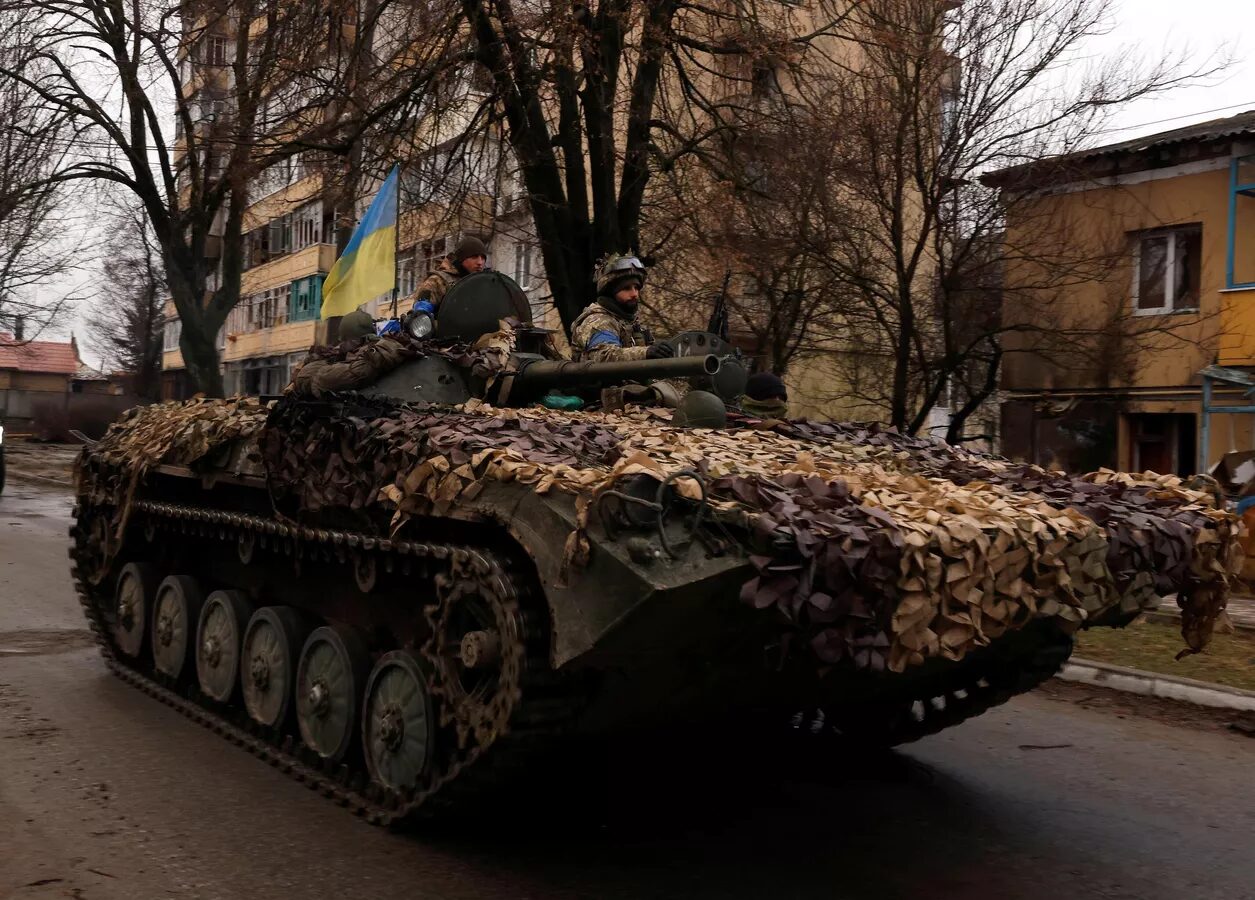Med Kiev, der hurtigt anklager Rusland for 'folkedrab' og 'massakre' i Bucha, virker vestlige medier ivrige efter automatisk at kriminalisere Moskva uden en fuldstændig undersøgelse - og det ser ud til, at medierne er et værktøj for Vesten til at råde bod på frustrationer forårsaget af fiaskoerne af sin egen propaganda, har eksperter udtalt.
Der blev sået tvivl om påstandene om, at Rusland står bag de påståede 'krigsforbrydelser' i Bucha, kort efter at en video, uploaded af en af Kievs territoriale forsvarsbataljonsledere, dukkede op igen online. I videoen, med titlen 'BOATSMAN BOYS' work in Bucha', høres krigere spørge, om de kan skyde folk uden blå armbind (en identifikator for de ukrainske styrker) - og modtage 'F***, selvfølgelig!' Som svar.
Vanessa Beeley, en uafhængig undersøgende journalist, peger på, hvordan 'NATO-tilpassede' medier spiller sin rolle ved at 'beskytte deres 'side' mod følgerne for de krigsforbrydelser, de har begået i årtier', samtidig med at de fremhæver uoverensstemmelser i de vestlige promoverede fortælling.
Kommentar: Delvist oversat af Sott.net fra Experts: Bucha-Like 'False Flag' Incidents to Continue as West 'Frustrated' Over Propaganda Failures
Commenting on the "BOATSMAN BOYS" video, Beeley says that they are a division of the Azov battalion - "the same Azov battalion that is responsible for mass graves in Donetsk and Lughansk for 8 years, the same Azov battalion whose ancestors carried out one of the worst massacres of the second world war, executing 33, 771 Jews in Babi Yar, Kiev in 1941."
"Yet we are supposed to believe that a Russian army withdrawing to preserve civilian lives as it has done consistently during its military campaign in Ukraine - is responsible for the execution of Ukrainian civilians including Russian speakers, whose protection was one of the main triggers for this incursion into Ukraine to 'Denazify' the territory," Beeley says.The sentiment is echoed by Joe Quinn, political commentator and author, who says that it was "entirely plausible" that Ukrainian military policy was to shoot anyone on the street that did not have a blue armband, and in particular those with a white armband - a sign recognized as an identifier of the Russian military. According to Quinn, it was possible that some of the Bucha civilians wore white bandages as a sign of friendliness towards the Russian military, prompting the Ukrainians to assume that everyone with that bandage was somehow aligned with the Russian forces.
"Another interesting possibility is that at least some of the dead on the street were killed by artillery fire," he continues. "Several of the bodies are close to evidence of artillery, of missile strikes. If some, or all, of the dead were killed by artillery strikes, then they can only have been killed by artillery fire from Ukrainian positions in the forested area south of Bucha."Quinn notes that this is not the first time when Ukrainian forces have fired at civilians, recalling the case of Mariupol when "the Ukrainian military fired on humanitarian corridors set up by the Russians in an attempt to kill Russian soldiers, prevent civilians from leaving, and killing civilians in the process."
"On March 26, the Russian military in Bucha established a corridor for civilians to leave towards Belarus. Were the civilians on the street in Bucha killed at that time or in the following days by Ukrainian artillery fire? It is certainly a more plausible explanation than the irrational claim that retreating Russian soldiers decided to indiscriminately 'shoot' civilians on the street in Bucha," Quinn says.More 'False Flags' to Come?
The Western media push to stick to the Russia-blaming narrative can be explained by the West's frustration over its propaganda "falling on deaf ears", according to Adriel Kasonta, a London-based foreign affairs analyst and former chairman of the International Affairs Committee at the Bow Group think tank.
"They will do whatever it takes, including propaganda, to smear Russia to somehow destroy the good name of Russia," Kasonta suggests, saying that such efforts can stem from the West's opposition to the idea of someone in Kiev being in favour of a peace agreement with Russia.He also said that it can relate to the fact that Russia has made significant steps towards financial and economic independence from the West and stronger ties with China and India, which "is causing a huge frustration" in the West. Amid intense efforts to fuel the anti-Russia narrative, Kasonta says, more incidents similar to that in Bucha can be expected to occur - along with "many more accusations from the so-called reputable institutions like Human Rights Watch and others."
"I think that there will be a lot of false flag operations, a lot of poking, so to speak, the so-called Russian bear in the eye and trying to provoke Russia to make a mistake," Kasonta says.




Læserkommentarer
dig vores Nyhedsbrev